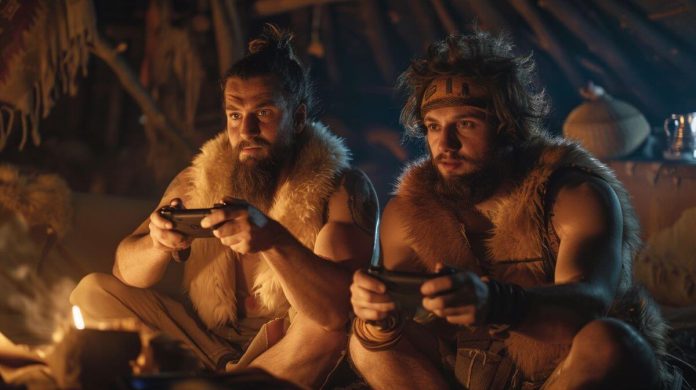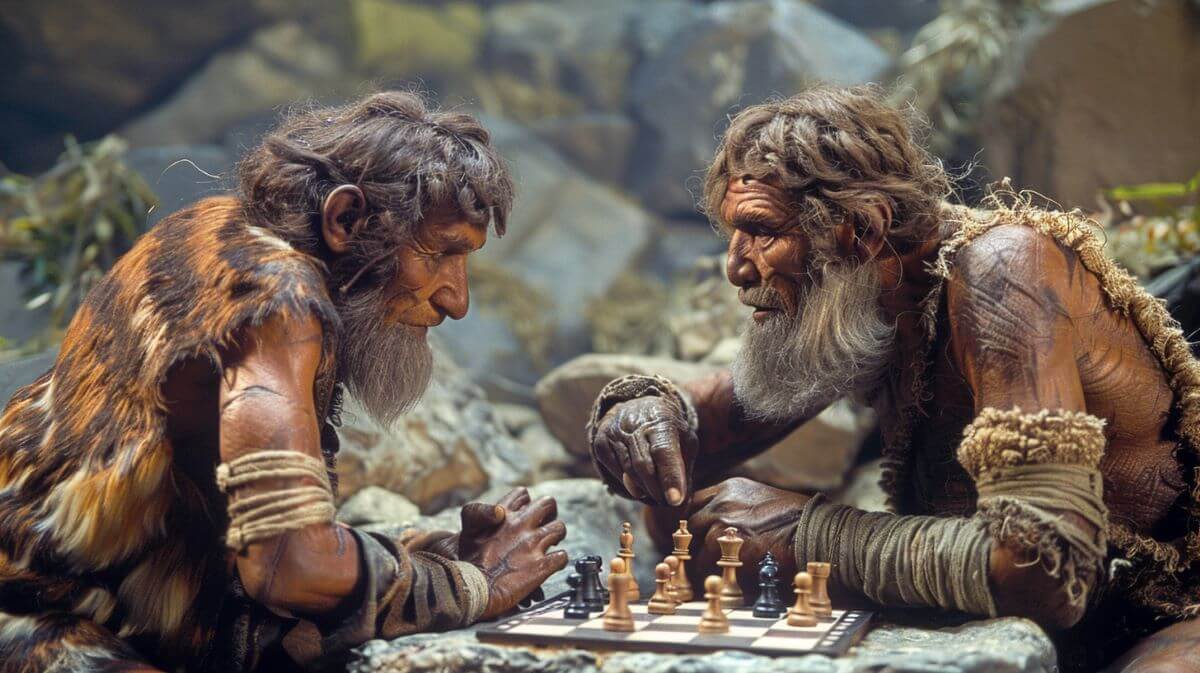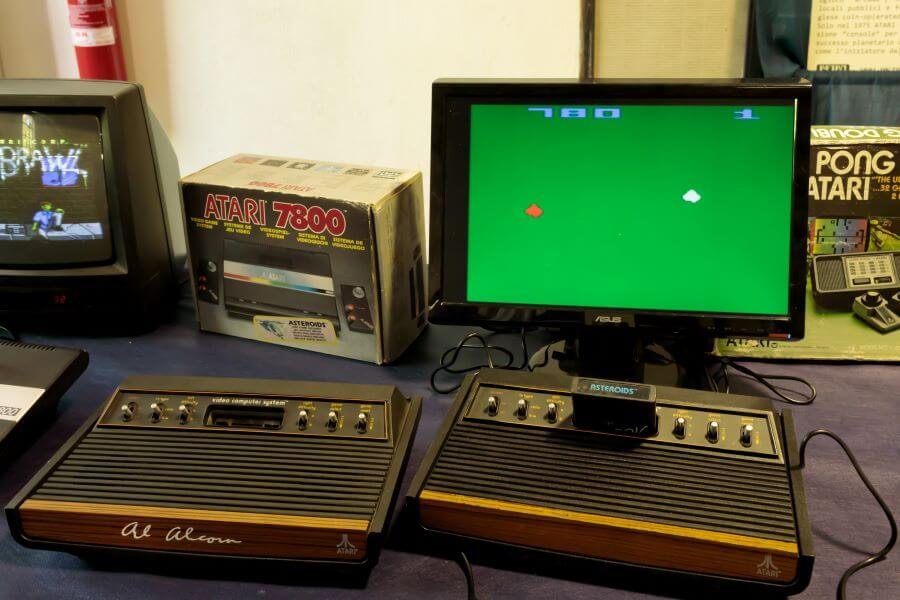
Last Updated on 12th July 2024
Gaming has played a major role in societies across the millennia, from the rudimentary board games of ancient Mesopotamia to the online worlds we’re familiar with today.
Though the forms of games we play have evolved dramatically, the core purpose of gaming has remained the same – to entertain, challenge and connect. It’s what continues to attract gamers from every demographic. In fact, in 2022, one-quarter of adults in the UK reported playing some form of game.
The evolution of gaming is a fascinating journey from rolling dice and moving to high-tech consoles and virtual reality (VR) headsets.

The Beginning of Gaming
The earliest traces of games dates back to around 3000 BC, but there is archaeological evidence that suggests this could originate further back still. Early civilisations enjoyed many variations of the games we enjoy today, including checkers, backgammon and rudimentary forms of chess.
These games and the spaces they were played in played integral social purposes, including fostering a sense of community and teaching players strategy.
Board Games
Board games have been providing us with the perfect blend of strategy, chance and social interaction for centuries. The Royal Game of Ur is the oldest board game on record and is believed to have originated in ancient Mesopotamia more than 4,000 years ago. The ancient Egyptians enjoyed the game of Senet, a game so incredibly similar to the game of chess we enjoy today.

Digital Era
The rise of digital games ushered in a revolutionary chapter in gaming history – the invention of the computer. The first digital games hit the market in the 1950s with them being played on large machines in arcades before making their way into our homes.
The arrival of consoles such as the Atari 2600 in the 70s and 80s solidified video games as our mainstream form of entertainment.
Internet Gaming
The internet was born in the 1990s kicked our gaming experience up a notch and transformed the gaming landscape yet again. Online gaming platforms like Steam opened the doors for independent developers and allowed gamers to connect and collaborate from all over the world.
Even classic games like bingo found a new lease on life through the development of online bingo apps, allowing players to connect and compete from the comfort of their homes.
Gaming Today & The Future of Gaming
Today, gaming is a mammoth global industry that is continuing to develop and impress. VR and Augmented Reality (AR) systems are blurring the lines between real and virtual worlds and offer fully immersive experiences unlike anything available before.
The future of gaming is filled with possibilities that will take the industry to the next step. Cloud gaming could potentially eliminate the need for expensive hardware, while artificial intelligence is enhancing the challenge and enjoyment of games.




































